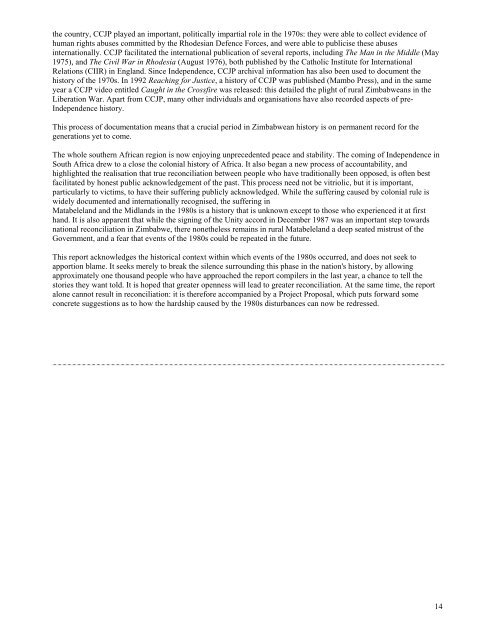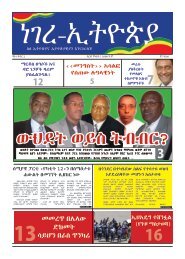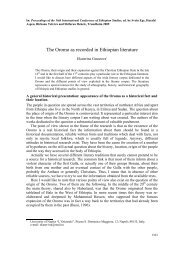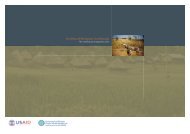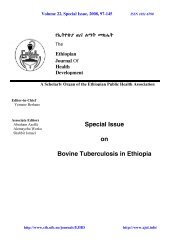MatabelelandReport
MatabelelandReport
MatabelelandReport
Create successful ePaper yourself
Turn your PDF publications into a flip-book with our unique Google optimized e-Paper software.
the country, CCJP played an important, politically impartial role in the 1970s: they were able to collect evidence of<br />
human rights abuses committed by the Rhodesian Defence Forces, and were able to publicise these abuses<br />
internationally. CCJP facilitated the international publication of several reports, including The Man in the Middle (May<br />
1975), and The Civil War in Rhodesia (August 1976), both published by the Catholic Institute for International<br />
Relations (CIIR) in England. Since Independence, CCJP archival information has also been used to document the<br />
history of the 1970s. In 1992 Reaching for Justice, a history of CCJP was published (Mambo Press), and in the same<br />
year a CCJP video entitled Caught in the Crossfire was released: this detailed the plight of rural Zimbabweans in the<br />
Liberation War. Apart from CCJP, many other individuals and organisations have also recorded aspects of pre-<br />
Independence history.<br />
This process of documentation means that a crucial period in Zimbabwean history is on permanent record for the<br />
generations yet to come.<br />
The whole southern African region is now enjoying unprecedented peace and stability. The coming of Independence in<br />
South Africa drew to a close the colonial history of Africa. It also began a new process of accountability, and<br />
highlighted the realisation that true reconciliation between people who have traditionally been opposed, is often best<br />
facilitated by honest public acknowledgement of the past. This process need not be vitriolic, but it is important,<br />
particularly to victims, to have their suffering publicly acknowledged. While the suffering caused by colonial rule is<br />
widely documented and internationally recognised, the suffering in<br />
Matabeleland and the Midlands in the 1980s is a history that is unknown except to those who experienced it at first<br />
hand. It is also apparent that while the signing of the Unity accord in December 1987 was an important step towards<br />
national reconciliation in Zimbabwe, there nonetheless remains in rural Matabeleland a deep seated mistrust of the<br />
Government, and a fear that events of the 1980s could be repeated in the future.<br />
This report acknowledges the historical context within which events of the 1980s occurred, and does not seek to<br />
apportion blame. It seeks merely to break the silence surrounding this phase in the nation's history, by allowing<br />
approximately one thousand people who have approached the report compilers in the last year, a chance to tell the<br />
stories they want told. It is hoped that greater openness will lead to greater reconciliation. At the same time, the report<br />
alone cannot result in reconciliation: it is therefore accompanied by a Project Proposal, which puts forward some<br />
concrete suggestions as to how the hardship caused by the 1980s disturbances can now be redressed.<br />
14


